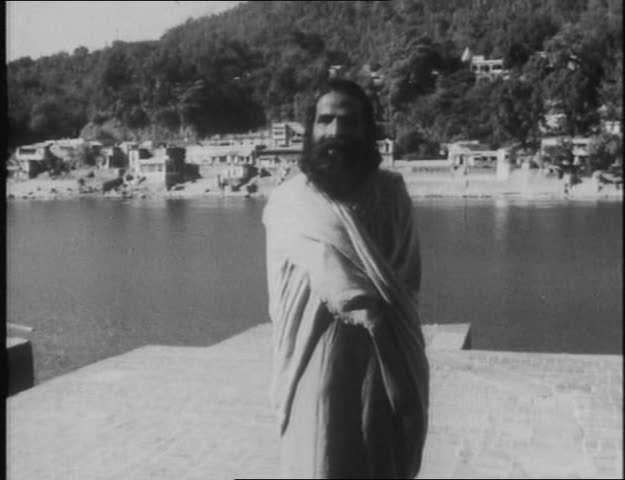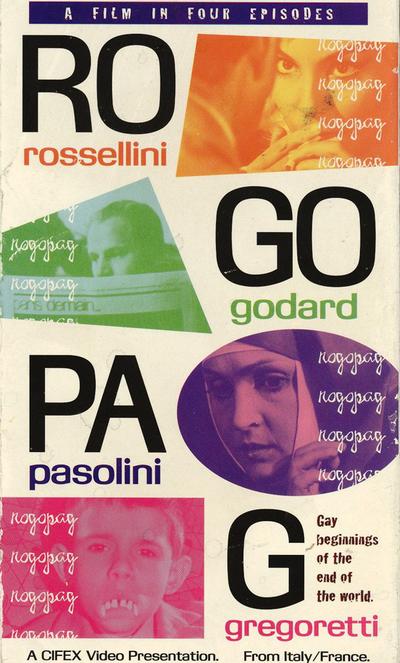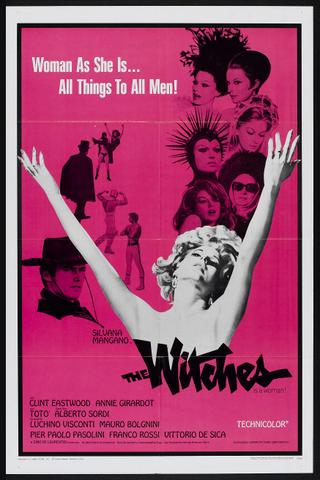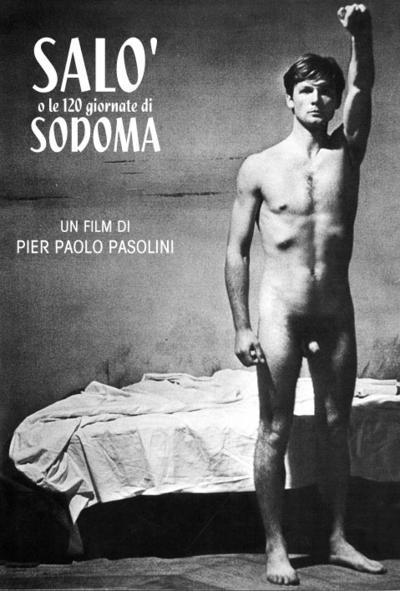Plot:
A film of five separate comedy to drama segments–directed by Visconti, Bolognini, Pasolini, Franco Rossi and de Sica. The international cast includes Clint Eastwood, Annie Girardot and Alberto Sordi, and features Silvana Mangano. Important Note: This film has been manufactured from the best-quality video master currently available and has not been remastered or restored specifically for this DVD release. 16 x 9. Important Note: This film has been manufactured from the best-quality video master currently available and has not been remastered or restored specifically for this DVD release. From Warner Brothers Website!Read More »
Pier Paolo Pasolini
-
Mauro Bolognini, Vittorio De Sica, Pier Paolo Pasolini, Franco Rossi, Luchino Visconti – Le streghe (1967)
1961-1970ClassicsComedyCommedia all'ItalianaFranco RossiItalyLuchino ViscontiMauro BologniniPier Paolo PasoliniVittorio De Sica -
Pier Paolo Pasolini – Appunti per un film sull’india AKA Notes for a Film on India (1968)
Documentary1961-1970IndiaPier Paolo PasoliniShort Film
here’s very little about this film on the internet. Pasolini travels to India to make notes about a future film he planned on making. He examines differences between the modern India and the historical one found in its mythologies and vedic texts by posing a particular question based on a didactic anecdote that no longer seems to apply in a twentieth century world. This ‘prehistory’ forms most of the first part of the film. The second part covers a modern India marred by social divisions, overpopulation and poverty. Pasolini keeps his focus on the human tragedy involved at all times.Read More »
-
Pier Paolo Pasolini – Salò o le 120 giornate di Sodoma AKA Salo, or the 120 Days of Sodom (1975)
1971-1980ArthouseItalyPier Paolo PasoliniSet in the Nazi-controlled, northern Italian state of Salo in 1944, four dignitaries round up sixteen perfect specimens of youth and take them together with guards, servants and studs to a palace near Marzabotto. In addition, there are four middle-aged women: three of whom recount arousing stories whilst the fourth accompanies on the piano. The story is largely taken up with their recounting the stories of Dante and De Sade: the Circle of Manias, the Circle of Shit and the Circle of Blood.Read More »
-
Pier Paolo Pasolini – Il Fiore delle mille e una notte AKA Arabian Nights (1974)
Arthouse1961-1970FantasyItalyPier Paolo PasoliniQuote:
The concluding part of Pier Paolo Pasolini’s “Trilogy Of Life”, following The Decameron and The Canterbury Tales, Arabian Nights corrects many of the mistakes found in the latter, noticeably its ramshackle, uneven approach, and returns to the charming territory of the former. Indeed, the film is as good as The Decameron, if not better, and is generally considered to be the trilogies crowning moment and one of Pasolini’s finest films (critic Tony Rayns recently included it amongst his choices for Sight and Sound’s 2002 Top Ten Critics’ Poll).Read More »
-
Pier Paolo Pasolini – Porcile aka Pigsty [+Extras] (1969)
1961-1970Amos Vogel: Film as a Subversive ArtArthouseDramaItalyPier Paolo PasoliniQuote:
One of Pasolini’s most enigmatic films, it extends his cinematic obsessions into the realms of cannibalism and bestiality with two interweaving stories of two young men who become sacrificial victims of their different societies. One of them is a soldier and cannibal (Clementi) in a medieval wasteland and the other a son (Léaud) of an ex-Nazi industrialist (Tognazzi) in modern-day Germany. The young German is more attracted to pigs than to his fiancée (Wiazemsky). This rather silly parable, very much a product of the late 1960s, in which the bourgeoisie is caricatured, is filmed with such calm beauty and underlying disgust that it seems to gain in significance. Theorem (1968) and Pigsty were the only films in which the Marxist Pasolini dealt directly with the hated middle classes; thereafter he left the 20th-century behind until his final film, Salo (1975), which looks at even more extreme human actions.Read More » -
Various – Ro.Go.Pa.G. (1963)
1961-1970Amos Vogel: Film as a Subversive ArtArthouseItalyJean-Luc GodardPier Paolo PasoliniRoberto RosselliniUgo GregorettiVarious
Description: This consists of four short films by different directors. Rosselini’s ‘Chastity’ (‘Illibatezza’) deals with an attractive air hostess who receives the unwelcome attentions of a middle aged American. Godard’s ‘New World’ (‘Il Nuovo Mondo’) illustrates a post-apocalypse world the same as the pre-apocalyptic one but for an enigmatic change in attitude in most people, including the central character’s girlfriend. In Pasolini’s ‘Curd Cheese’ (‘La Ricotta’), a lavish film about the life of Jesus Christ is being made in a poor area. The impoverished people subject themselves to various indignities in the name of moviemaking in order to win a little food. Finally comes Gregoretti’s ‘Free Range Chicken’ (‘Il Pollo Ruspante’) in which a family of the materialist culture inadvertantly illustrate the cynical, metallic voiced doctrine of a top sales theorist.Read More »



